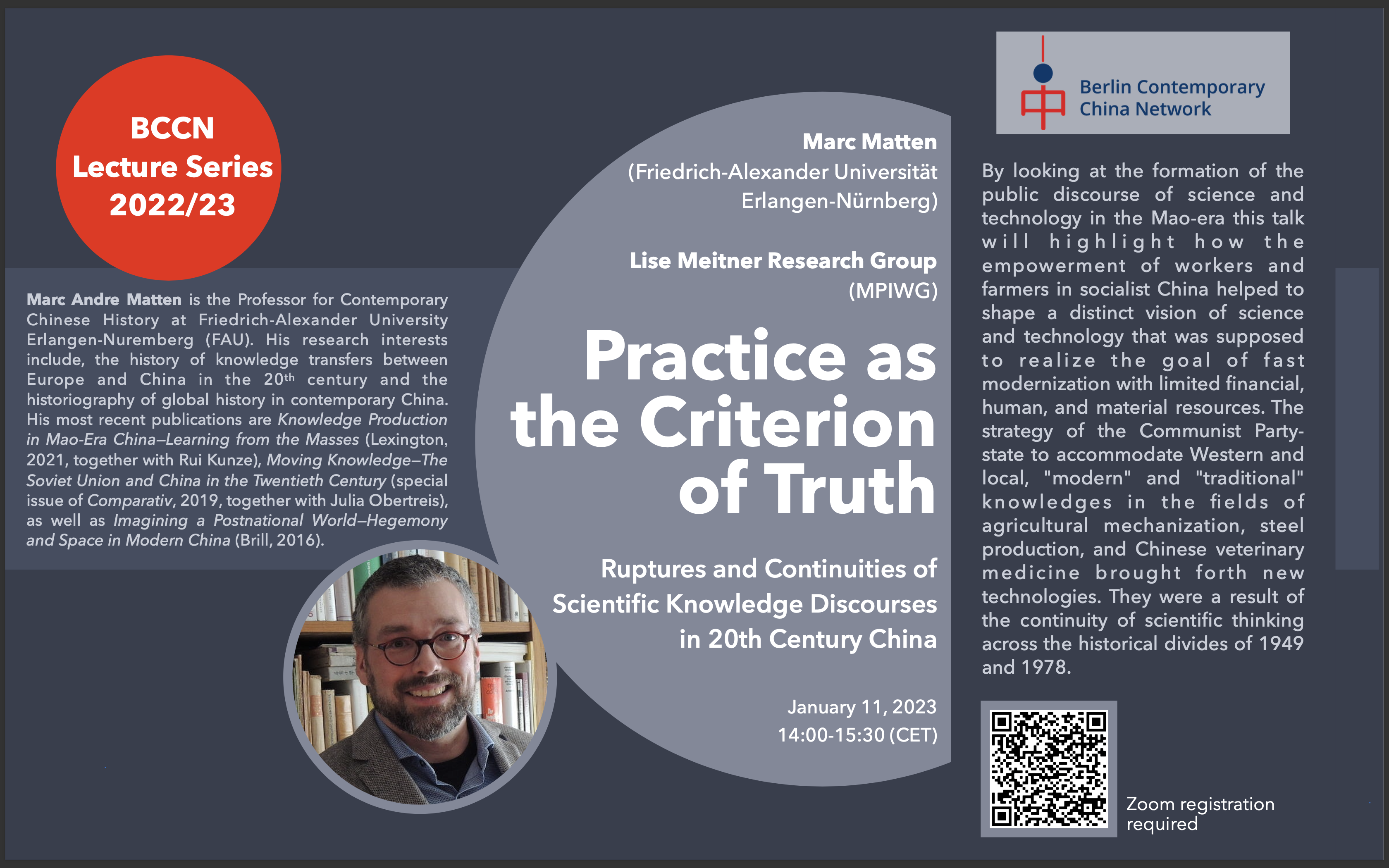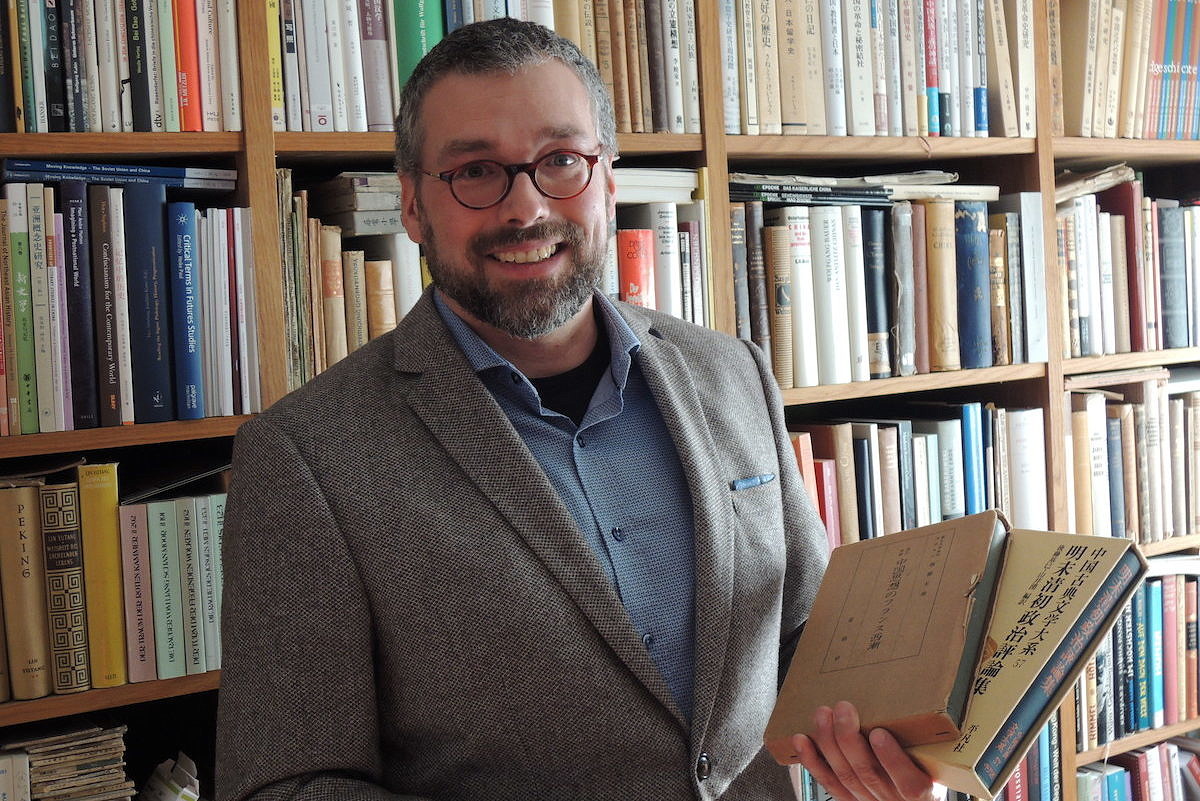Jan 11, 2023
Practice as the Criterion of Truth—Ruptures and Continuities of Scientific Knowledge Discourses in 20th-Century China
- 14:00 to 15:30
- Lecture
- Lise Meitner Research Group
- Marc Matten (Friedrich-Alexander Universität Erlangen-Nürnberg)
By looking at the formation of the public discourse of science and technology in the Mao-era this talk will highlight how the empowerment of workers and farmers in socialist China helped to shape a distinct vision of science and technology that was supposed to realize the goal of fast modernization with limited financial, human, and material resources. The strategy of the Communist Party-state to accommodate Western and local, "modern" and "traditional" knowledges in the fields of agricultural mechanization, steel production, and Chinese veterinary medicine brought forth new technologies. They were a result of the continuity of scientific thinking across the historical divides of 1949 and 1978.
Biography
Contact and Registration
Please register at the following link:
https://zoom.us/j/99516596246?pwd=b0Y3akFwN3FEejRZUTFGZ3ZQNWg2UT09
This event is part of the LMRG & BCCN Lecture Series "China—The New Science Superpower?" For further information about the series, specific sessions, or questions concerning registration, please contact office-ahlers@mpiwg-berlin.mpg.de.
About This Series
China’s push to become a leading science power is unprecedented in its speed, scope and, arguably, success. Reactions to China’s rise in global science are dichotomous: some anticipate that science made in China may come to dominate global academia while others deem it impossible to achieve scientific leadership under an authoritarian regime. A focus on rankings and statistics alone is apparently not enough to grasp the origins, characteristics, and the possible futures of China as a science superpower.
This monthly lecture series will bring together fresh empirical insights and intriguing theoretical reflections about the development of the science system in the People’s Republic of China and its global integration. Representing a variety of social science perspectives, our guest speakers will explore the evolution of Chinese science policy, interactions of societal norms and values and academia in the PRC, factors that enable or constrain scientific innovation, the global reception of scientific output and investment from China, the securitization of international collaboration, and much more.


